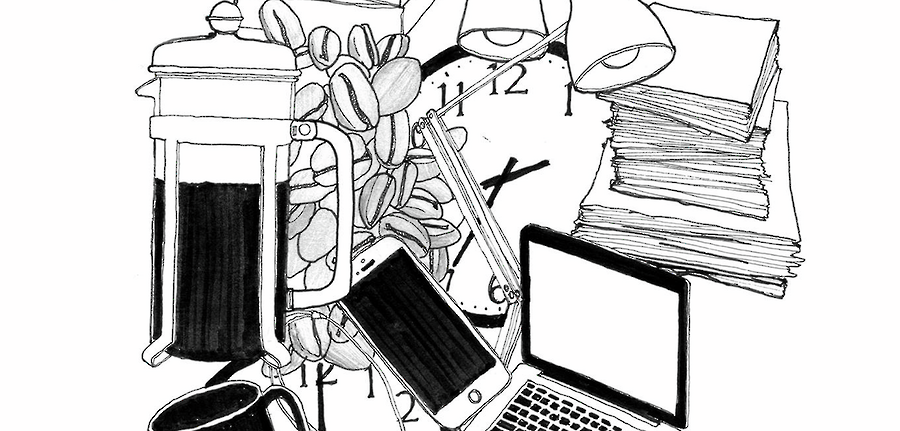
Performative wokeness needs to stop
In light of Alabama’s elections, Lizzie Bowes illustrates the harm in performative ‘wokeness’ and how real allies should act to challenge existing societal structures

‘Wokeness’ is something that is held as worthy of high praise in 2017, and for good reason. To be woke, or to be actively aware of the many injustices of the world, is used in a lot of circles as a measure of someone’s disposition, a character reference that can serve as a praise or a criticism. Phrases such as “You’ll like her, she’s really woke”, or “He’s quite difficult, not really woke”, have become staples of my sociolect, and this ‘wokeness’ has become something my friends and I hold in quite high esteem.
I have no issue with this. We should all aspire to be ‘woke’, to be informed of the oppressive structures at play in our respective societies and we should all feel compelled to act on that knowledge, to invest ourselves in activism and advocacy when required. What needs to end is the culture of performative wokeness that has unfortunately sprung to fruition alongside its genuine counterpart. Performative wokeness is just that –performative, a superficial show of solidarity with minority and oppressed bodies of people that enables (usually white and privileged) people to reap the social benefits of wokeness without actually undertaking any of the necessary legwork to combat injustice and inequality.
“This ‘God is a black woman’ trope isn’t uncommon, and feeds into a trend of deeming black women to be deities to be adored”
This phenomenon reared its ugly head most recently following the defeat of Roy Moore, a Republican representative running for the position of Senator in the state of Alabama. The exit polls revealed that black women had come out almost unanimously against Moore, with 98% of them voting for Moore’s Democratic opponent, and that was enough to provoke an onslaught of performative wokeness. Jimmy Fallon proclaimed the night after the event that “Every black woman’s back is hurting from carrying the election last night”, and JK Rowling took to Twitter to make what I’m sure she thought was a witty and woke remark. She attributed the election result to the fact that “God was in control. What he didn’t realise was, She’s black.”
Narrator's voice: Roy was right. God was in control. What he didn't realise was, She's black. https://t.co/pCpVifXgbq
- J.K. Rowling (@jk_rowling) December 13, 2017
This ‘God is a black woman’ trope isn’t uncommon, and feeds into a trend of deeming black women to be ‘queens’ and ‘goddesses’: deities to be adored. This, again, in principle, isn’t always a bad thing. The black women I know are strong, inspirational and worthy of being celebrated, but that doesn’t detract from the fact that black women are not just a homogenous mass who can be classified as ‘queens’ every now and then, elevated onto a pedestal and then largely ignored on a socio-political level until the next scandal, or news event, or political victory that prominently involves them comes around.
“The idea that… an occasional ‘YASSS QUEEN’ is enough to constitute decent, adequate allyship needs to be dismantled”
Black women are queens and goddesses, but in countries like America and especially in states like Alabama, where racial tensions are skyrocketing, they are also victims of innumerable social, political and economic oppressions. Malcolm X’s thoughts on the matter are sadly still relevant today, as it remains true that “the most disrespected woman in America, is the black woman. The most un-protected person in America is the black woman. The most neglected person in America is the black woman.” And yet this constant deification of the black woman as a ‘God’ or a ‘queen’ dehumanises them and encourages a perception of them not as a demographic group in need of actual allyship but as some kind of spectacle to be marvelled at from afar.
all I see is performative idolisation of black women as ‘queens’ and ‘god’ but I don’t see actions matching intentions.
- THE SLUMFLOWER (@theslumflower) December 14, 2017
The issue with tweets like Rowling’s and declarations like Fallon’s is that they are ultimately vacuous. No matter how well-intentioned these attempts at advocacy are, they cannot be accepted as meaningful because they do not benefit the oppressed people they claim to represent. Tweeting that ‘God is a black woman’ does not address the fact that voter legislation actively discourages black women as a demographic from electoral participation, nor does it do anything practical to combat the wage inequality, police brutality, abuses of power or institutional racism and sexism that actively persecutes black women on a daily basis.
With a few clicks, JK Rowling can depict herself as the archetypal ‘woke’ liberal, wheeling out a performative trope and only serving to demonstrate her own frustratingly evident privilege in the process. She is able to dip in and out of racial politics merely when it is topical, to strengthen her personal brand of faux-social-justice-advocate – which, ultimately, benefits only herself. Yet it is those significantly less privileged than her – black women, women of colour – who constantly bear the burden of the emotional, mental and physical labour that accompanies engaging with injustices and attempting to rectify them. They get nothing out of these entirely superficial displays of support.
Allyship should be difficult. It should entail those in society who are in a position of power to to take on that burden and do actual labour to advance the rights of those most vulnerable. They have the power to challenge the structures that uphold white privilege. The idea that a tweet, or a passing public comment, or an occasional ‘YASSS QUEEN’ is enough to constitute decent, adequate allyship, needs to be dismantled. We need those with white saviour complexes, who feel the need to deify black women, to put their money where their mouth is and to actually do something. Occasional lip service to marginalised bodies is not enough.
Illustrated by Robyn Elliott-Murphy

